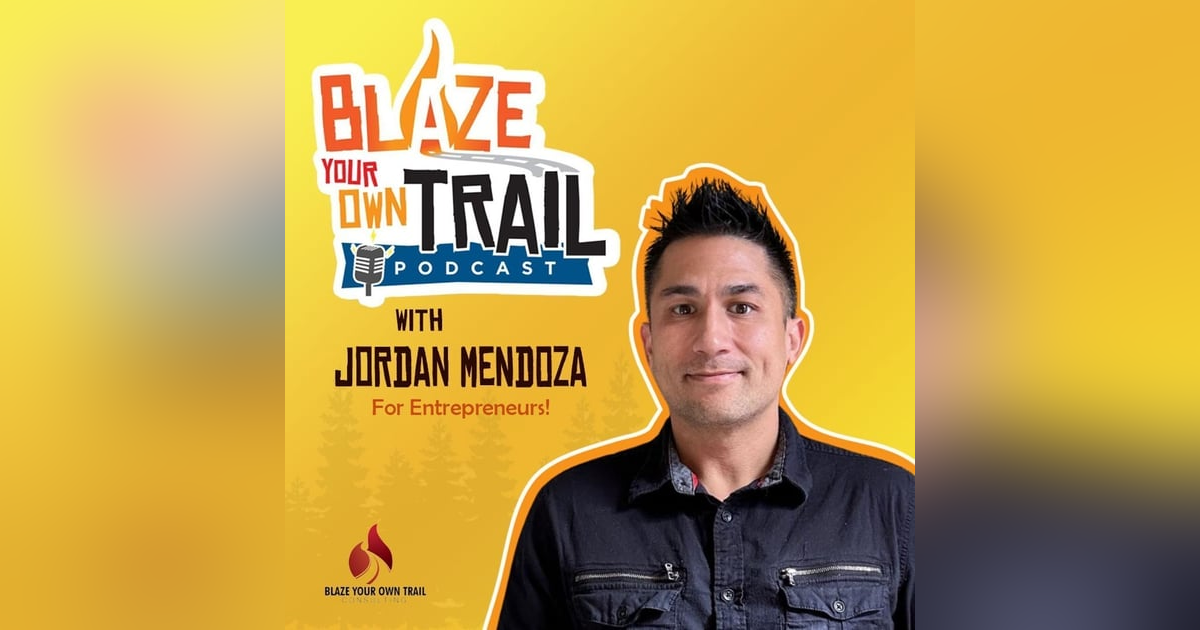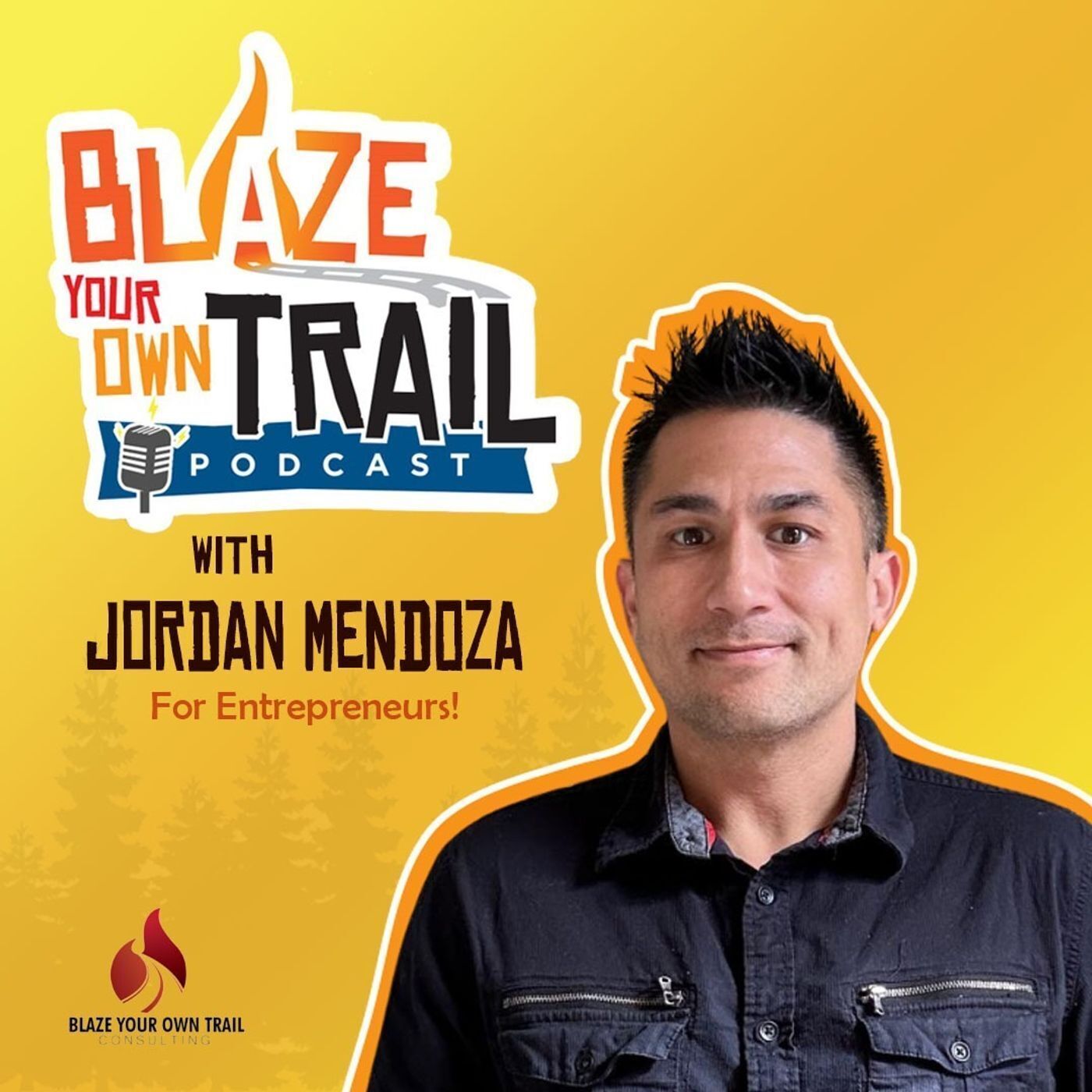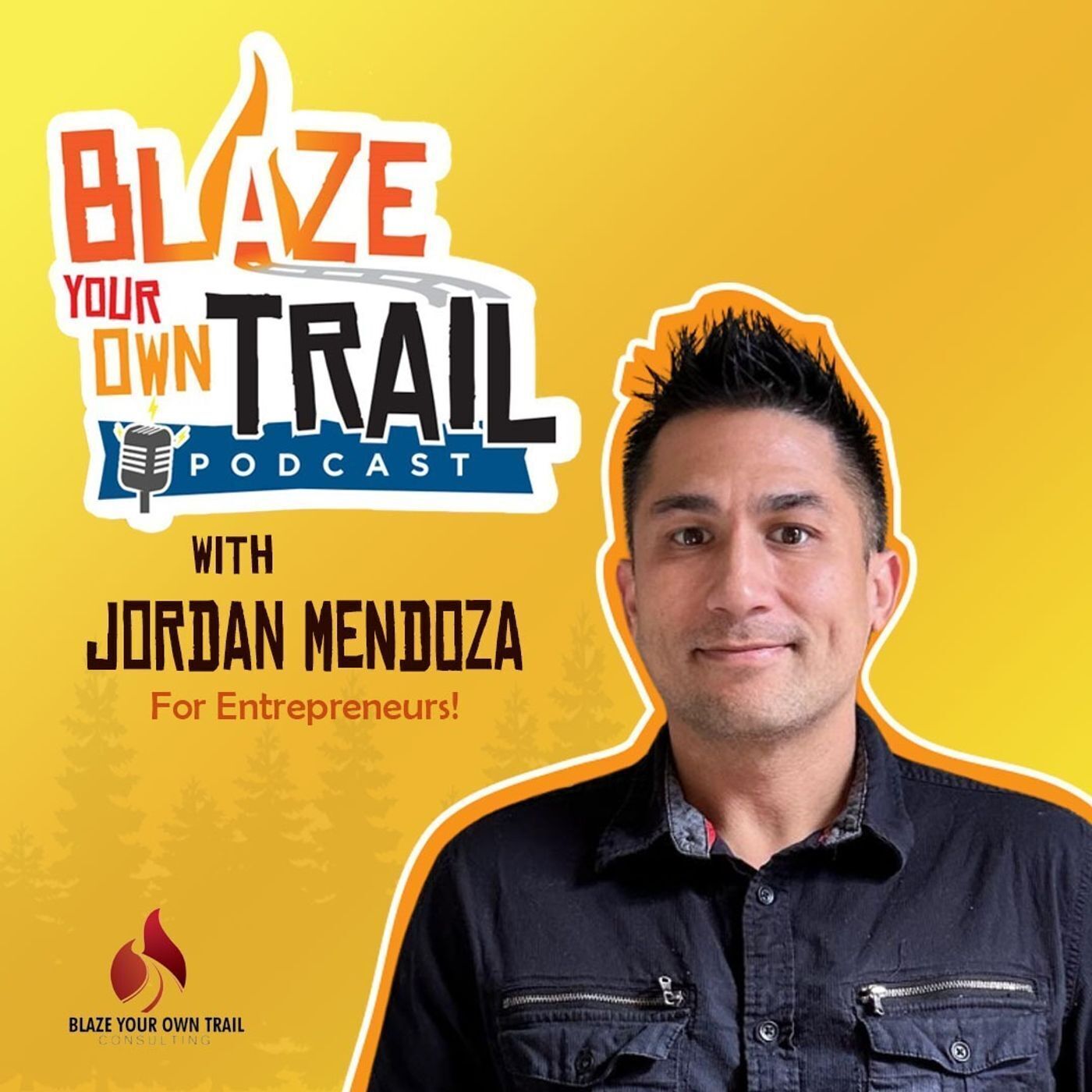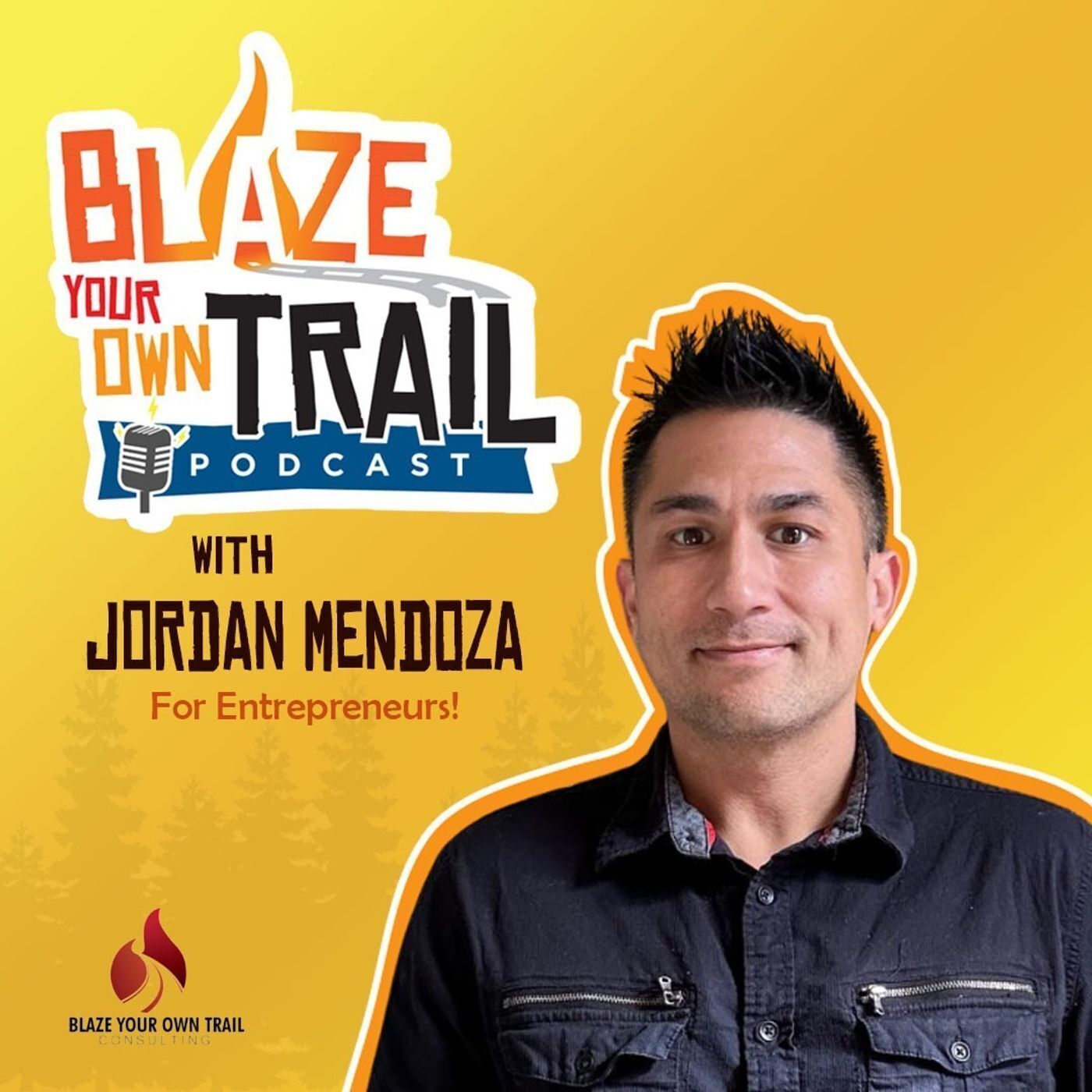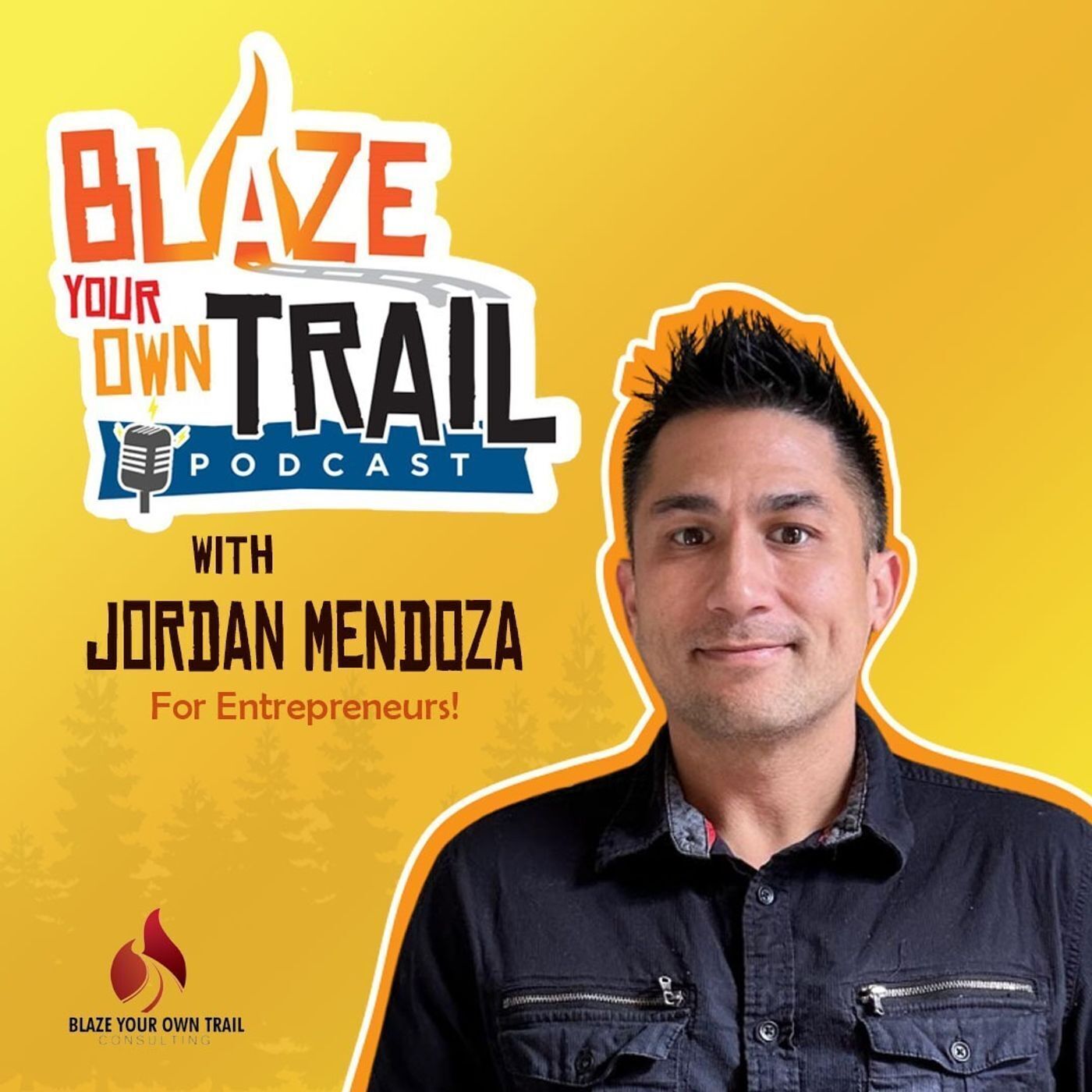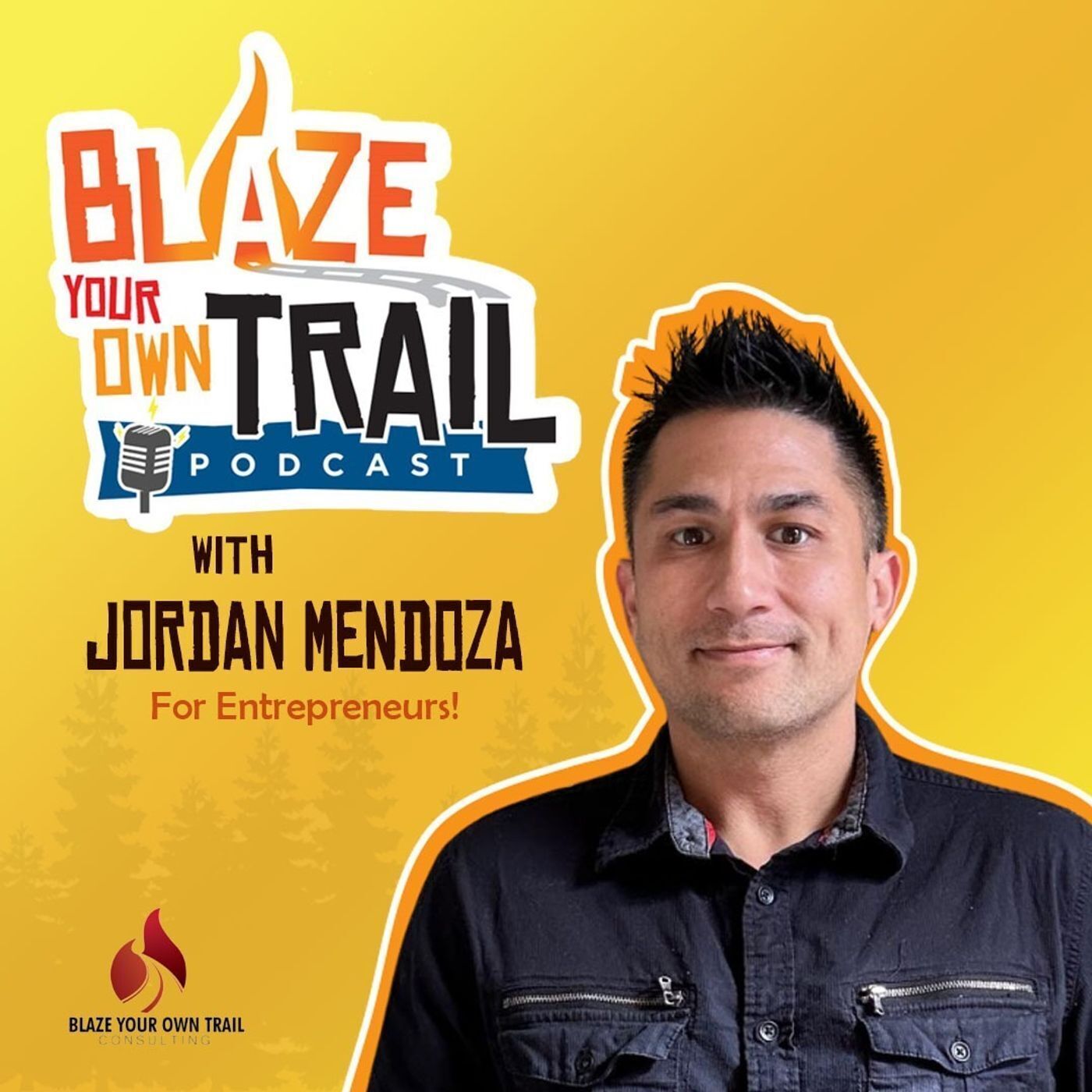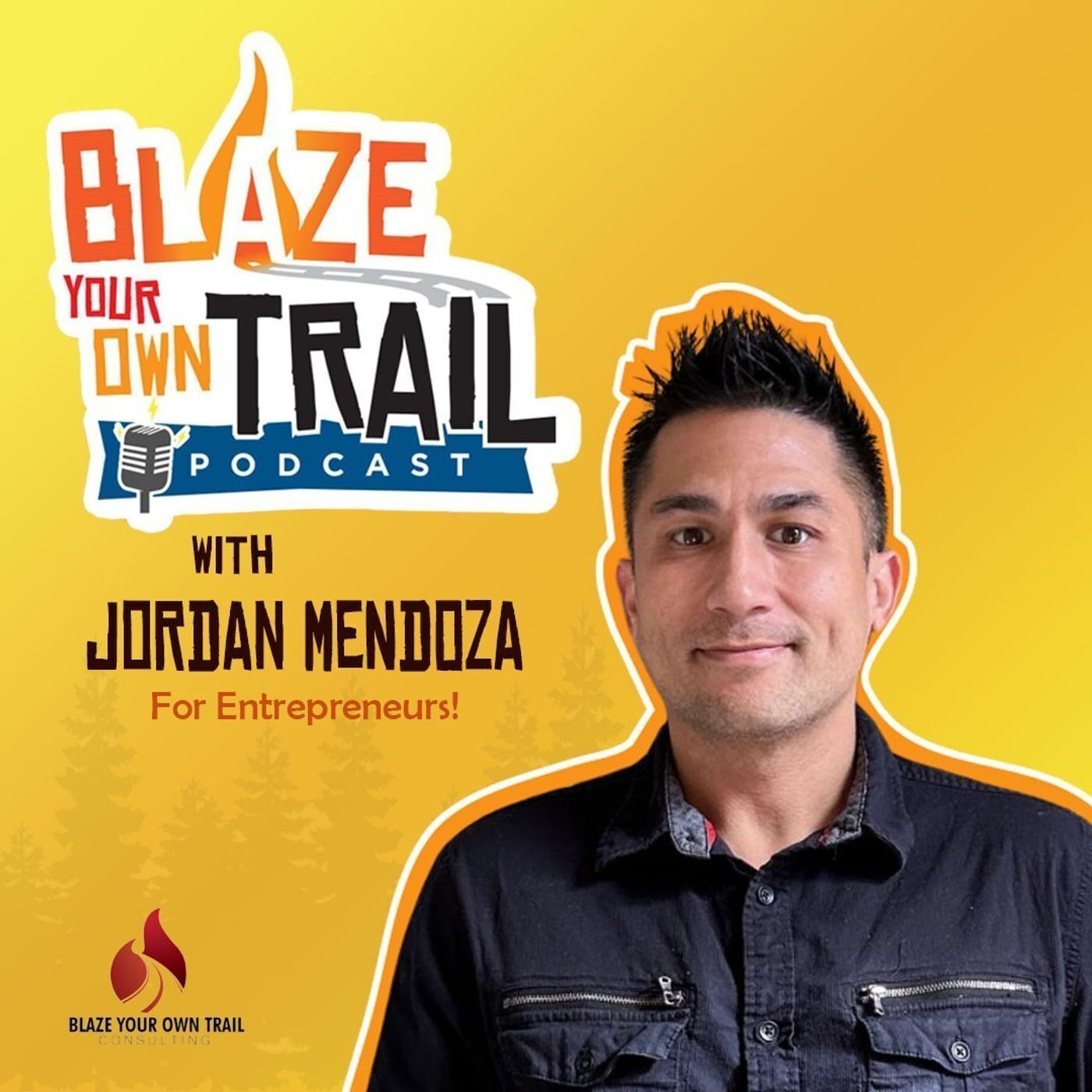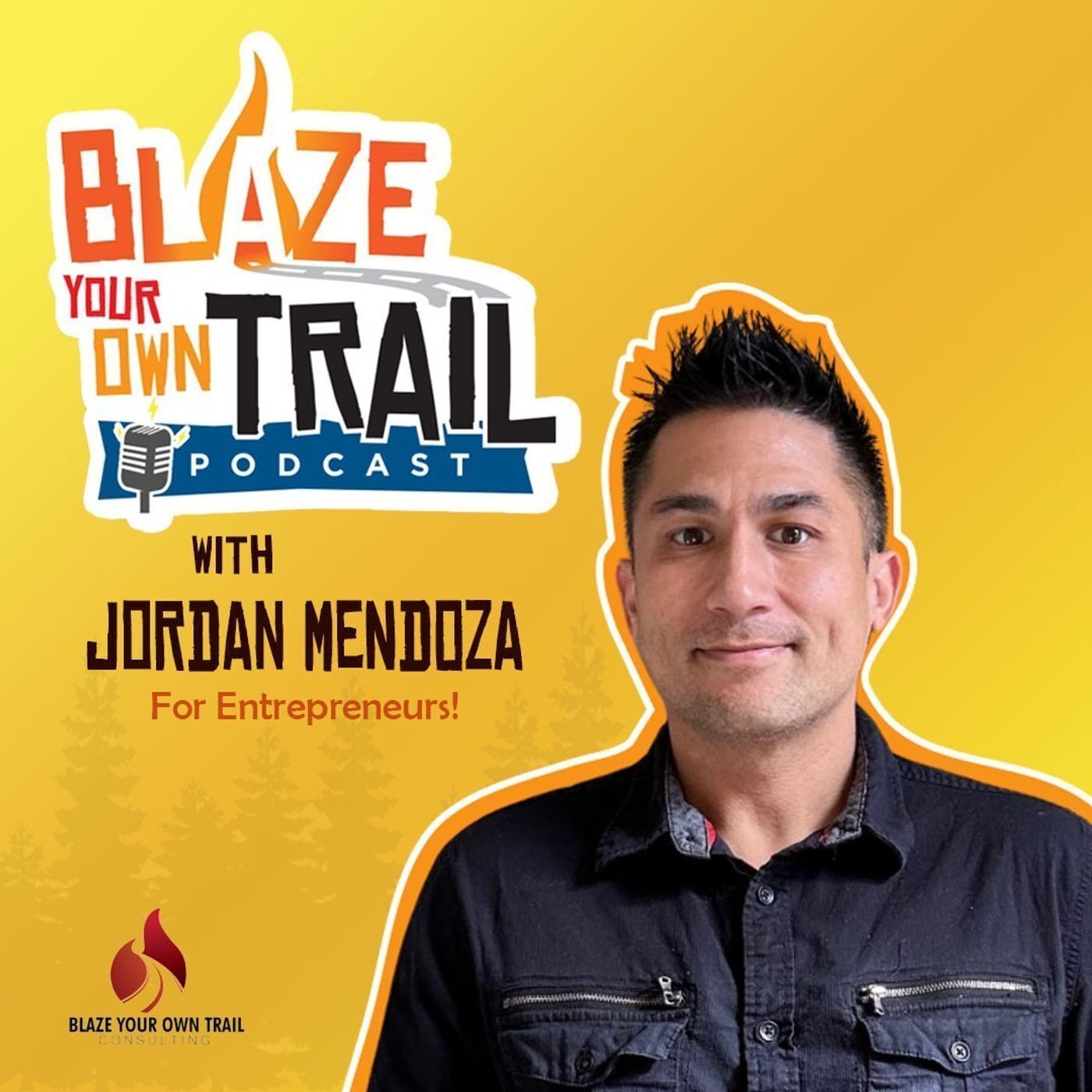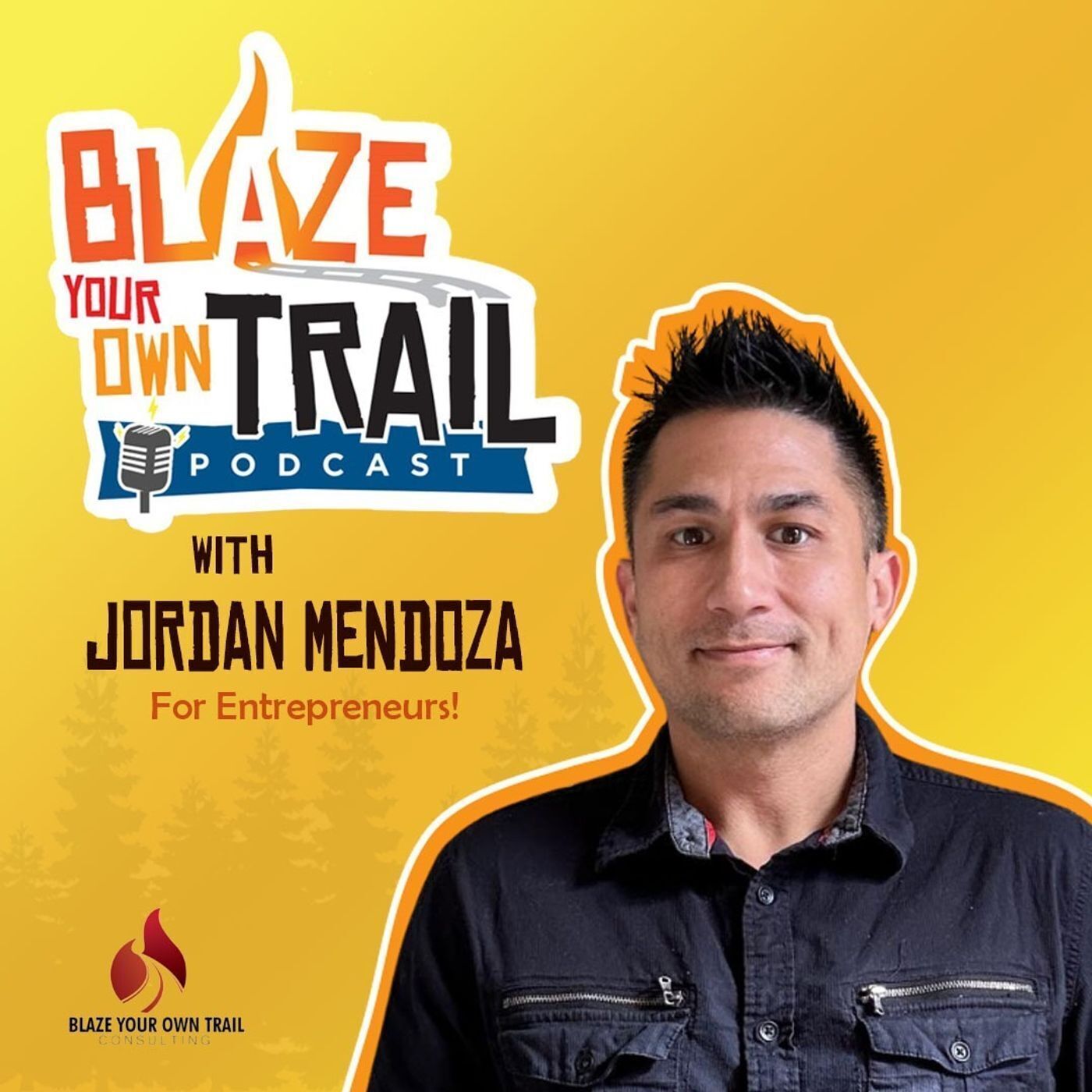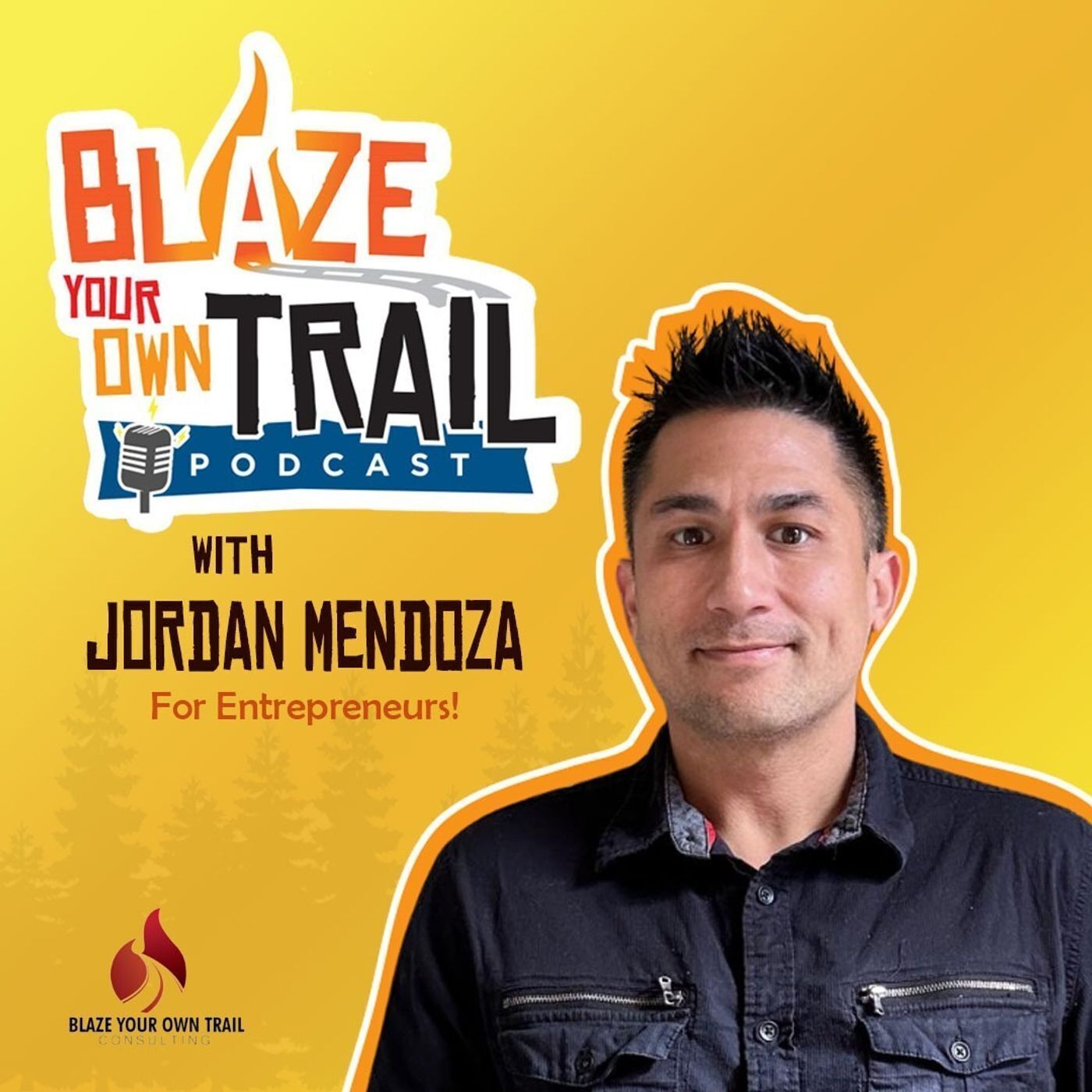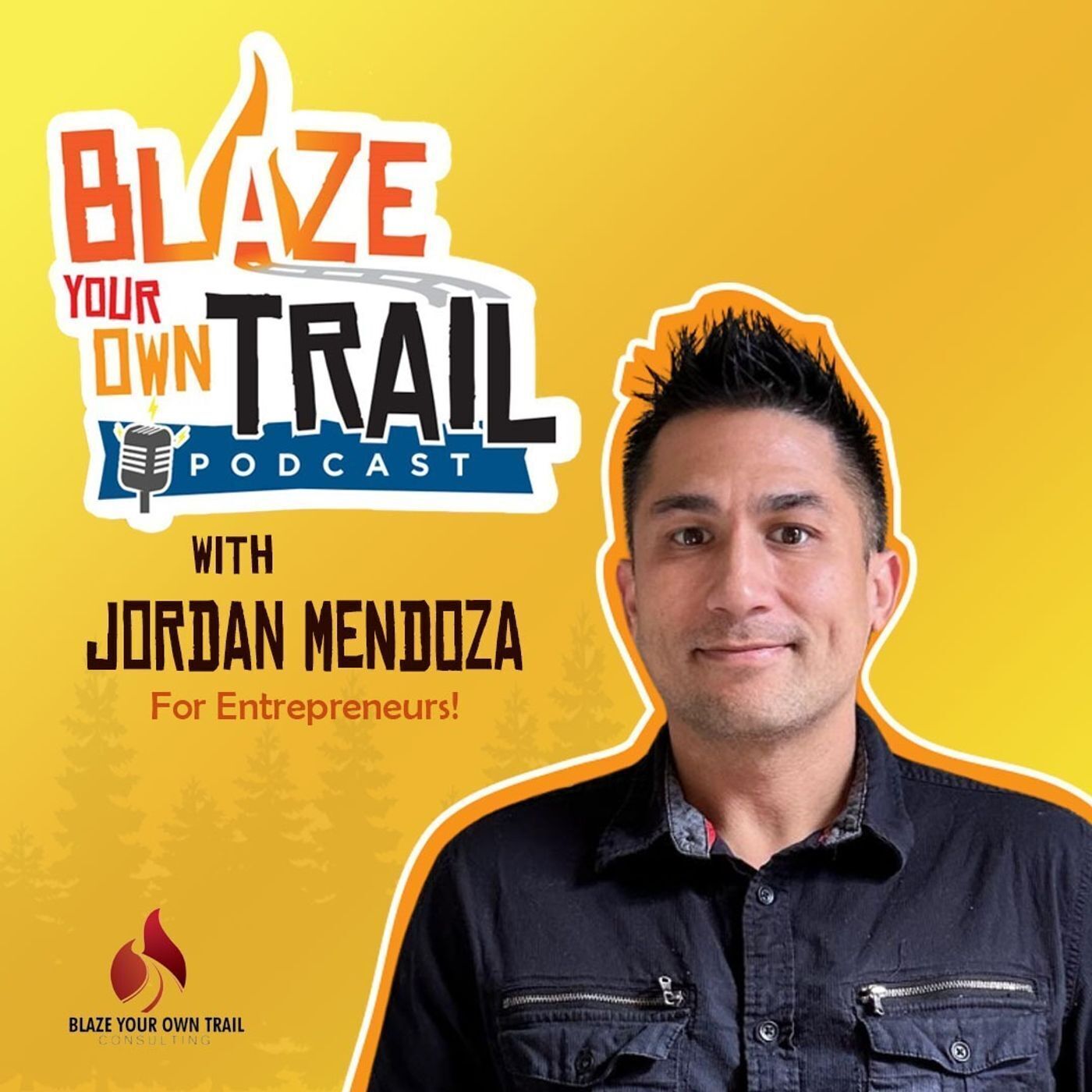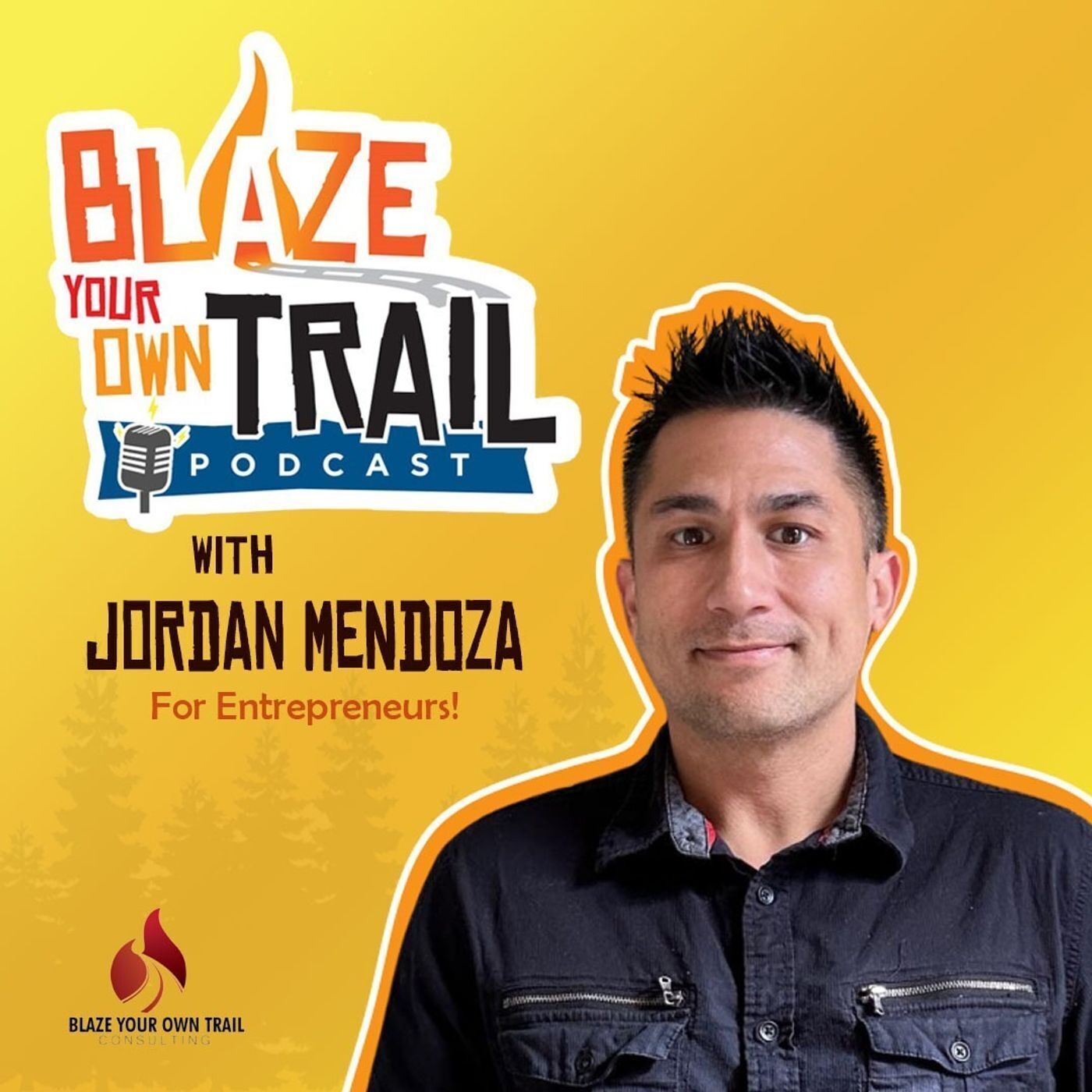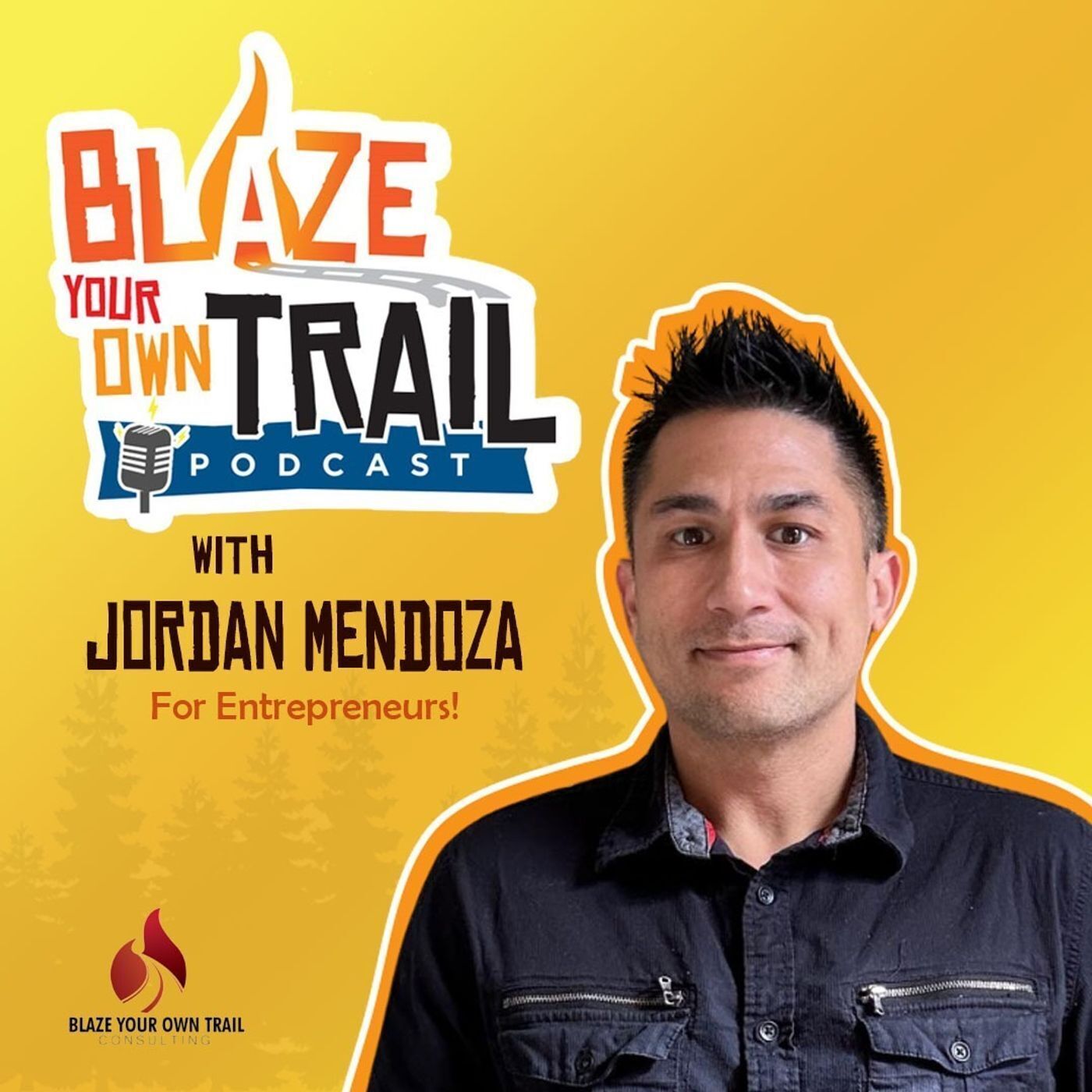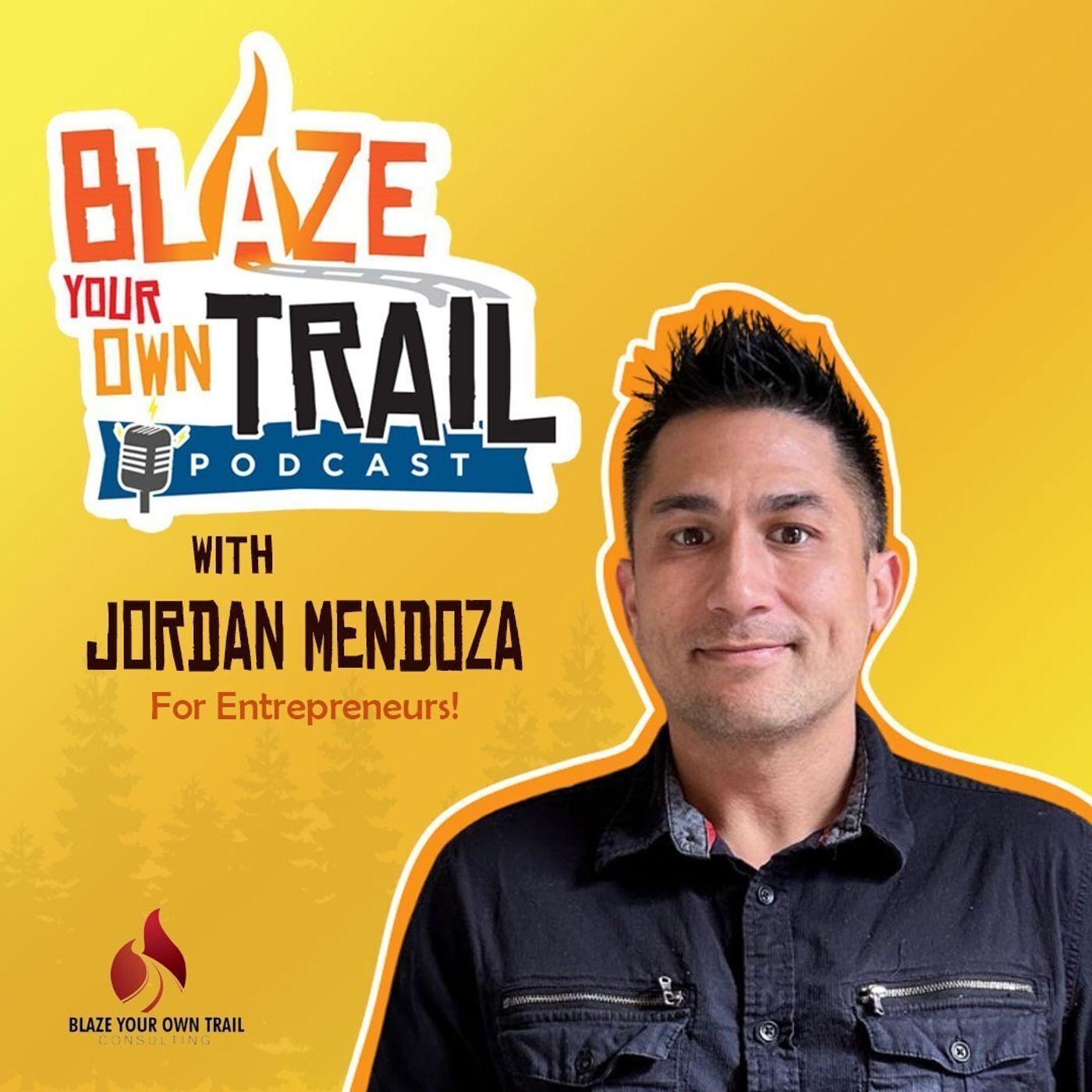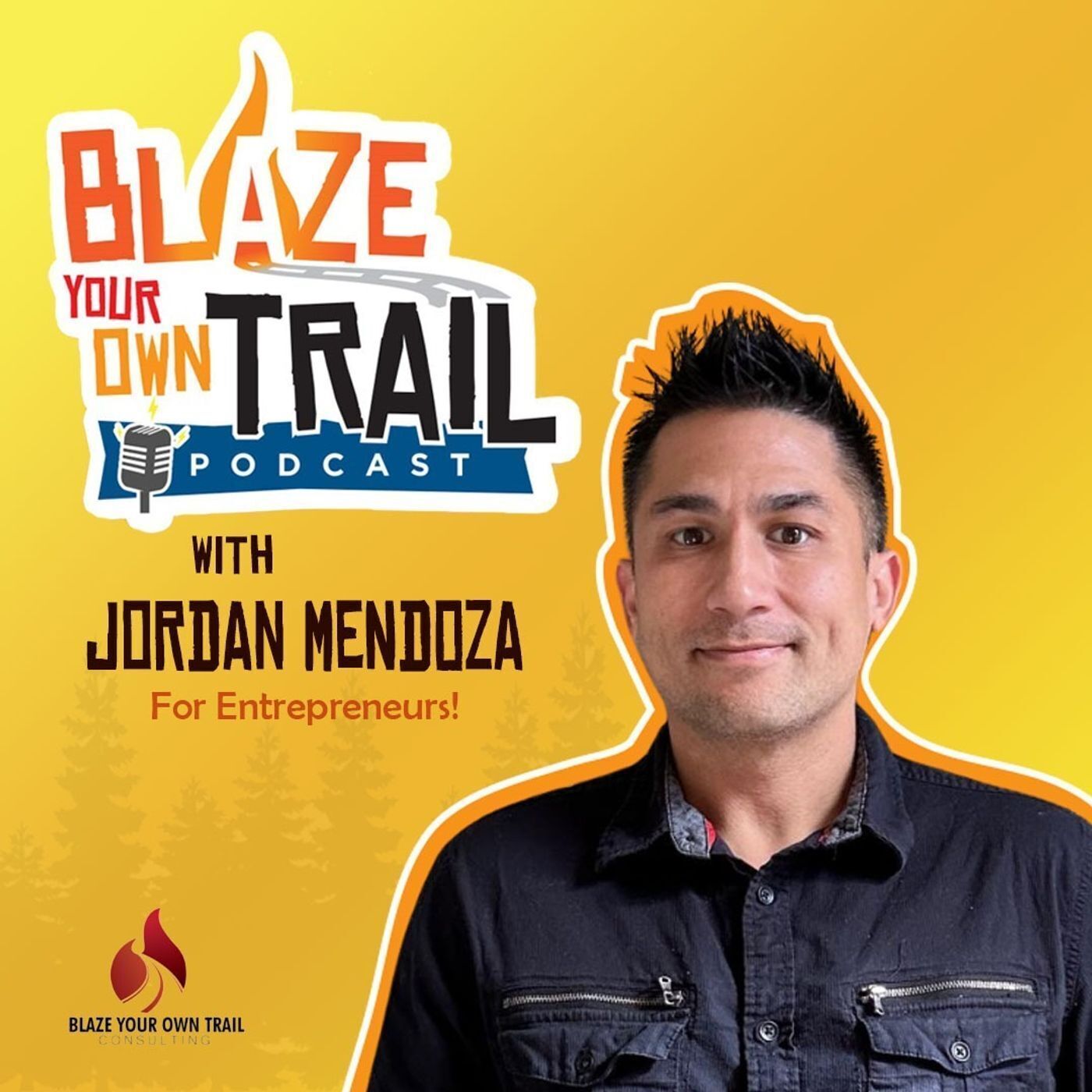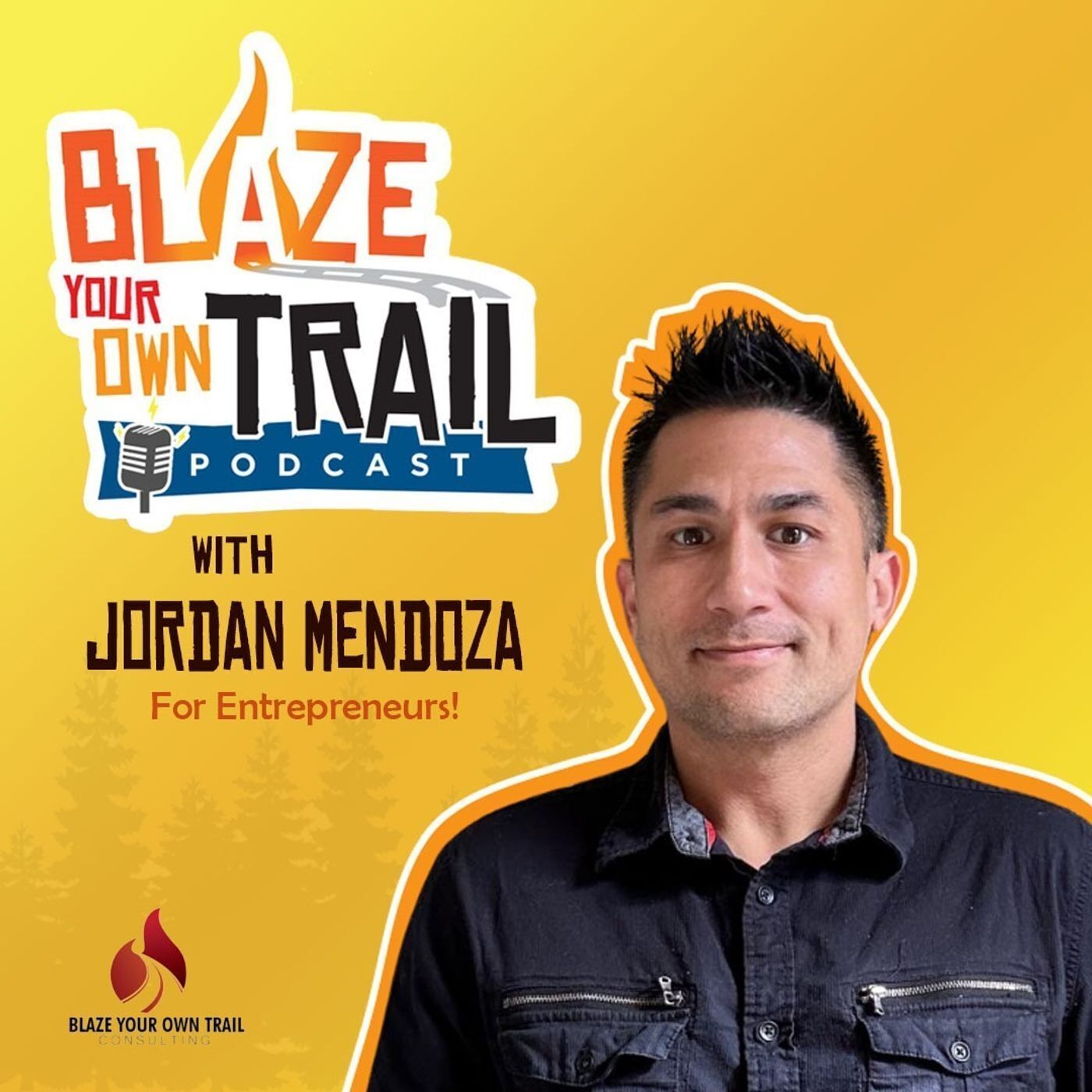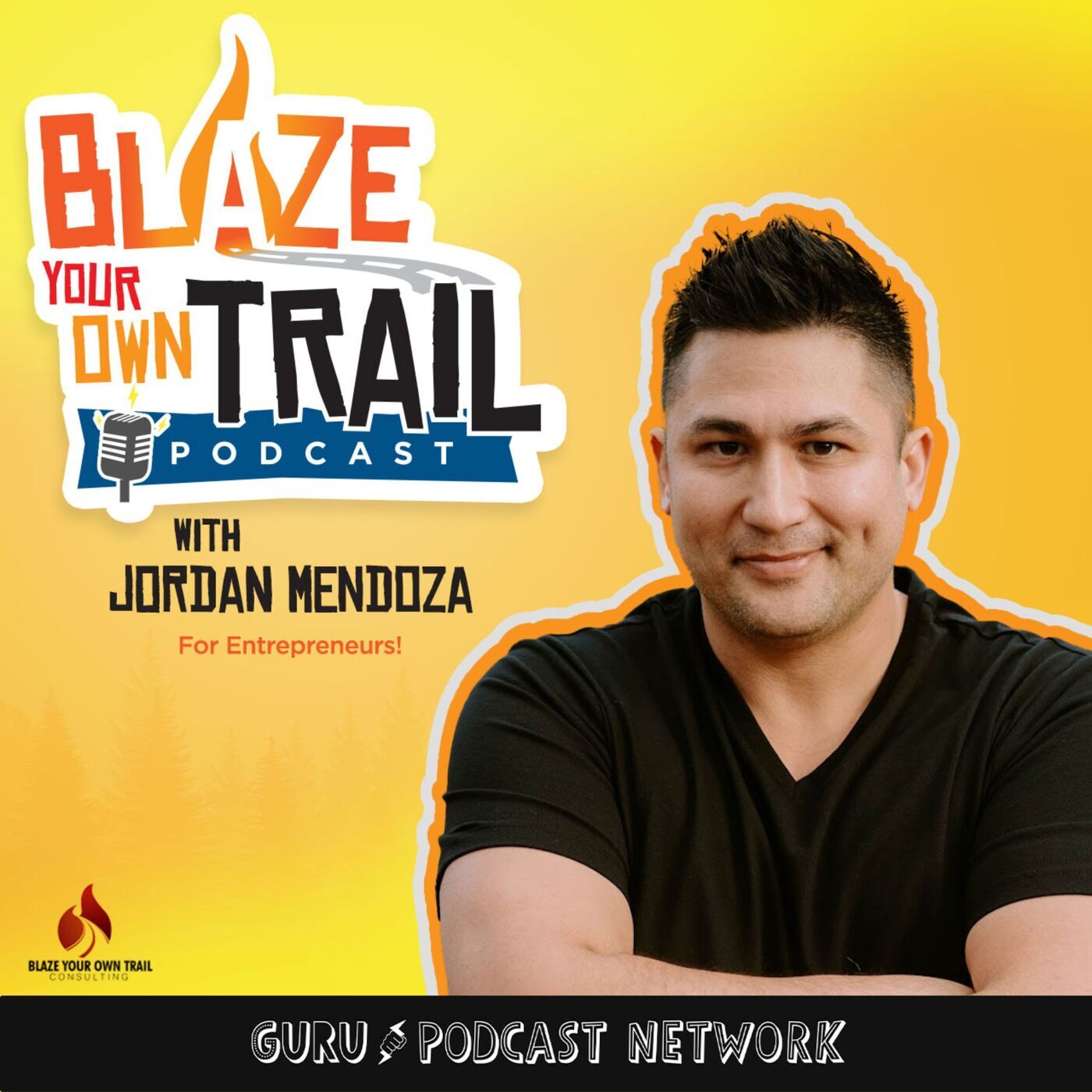

About Tanya:
She spends her days helping business owners with her 5 step framework learn how to re-passion, grow through collaboration, and stop trading minutes for money so they can go from wanting to break up with their business to falling deeply in love with it again.
After seeing too many entrepreneurs struggling, she decided to write the book to help them grow profits, build relationships and stop feeling alone. “How To Collaborate” is a step by step guide for everyone, no matter what level of business you are at.
She can also be found on her weekly podcast, Fox Talks Business with over 240 episodes released.
Takeaways
- The value of finding mentors and coaches in accelerating personal and professional growth.
- The significance of investing in personal development and leveraging experiences to grow as an entrepreneur.
- The importance of self-discovery, resilience, and adaptability in navigating the challenges of entrepreneurship.
- Success is a personal choice and should evolve over time.
- Effective collaboration requires clarity on what you want, what you can offer, and a willingness to put skin in the game.
- Celebrating every success, no matter how small, is important for personal growth and motivation.
Chapters
00:00 The Journey Begins: Early Years and Entrepreneurial Aspirations
08:17 Venturing into Entrepreneurship: Challenges and Triumphs
13:22 The Power of Mentorship and Personal Development
22:53 The Journey from Retail to No-Nonsense Coaching
25:10 The Power of Effective Collaboration
40:03 Resources for Business Success
Connect with Tanya:
Website: https://www.foxtalksbusiness.com/
Podcast: https://www.foxtalksbusiness.com/podcast
Looking for more tips centered around social media and entrepreneurship?
Connect with Jordan below:
LinkedIn: https://www.linkedin.com/in/jordanjmendoza/
Join 18K plus other readers: https://www.linkedin.com/pulse/so-you-want-start-podcast-actionable-tips-inside-jordan-mendoza-7dtpe/
Instagram: https://www.instagram.com/therealjordanjmendoza/
Clapper: https://clapper.vip/jordanjmendoza
Join my Facebook Group: https://www.facebook.com/groups/linkedintrailblazers
Website: https://www.blazeyourowntrailconsulting.com
Installing strategic sales systems & processes will stop the constant revenue rollercoaster you might be facing which is attainable through our 6 Week Blazing Business Revenue Coaching Program
Book a discovery call with Jordan now to learn more!
The Blaze Your Own Trail Podcast is powered by:
Jordan Mendoza (00:03.003)
Hello everyone and welcome to the Blaze Your Own Trail podcast. My name is Jordan Mendoza, I'm your host and I've got a very special guest with me today. Her name is Tanya Fox and I'm gonna have her tell you a little bit about who she is and what she does today.
Tanya Fox (00:19.935)
Well, thank you, Jordan, for having me on the show. I've listened to quite a few of your episodes. I'm really excited to be here. My name is Tanya Fox, as you said. I'm a collaborative business coach and I started my first business in 1998. So I've been doing this for quite a while, just as long as Google. I actually started before them and I've owned everything from retail to franchise to service based businesses. And my number one goal is to help people.
sort of reignite that spark that we lose around three to five years in business.
Jordan Mendoza (00:54.939)
Love it. Love it. Well, I'm at that kind of three and a half year mark for Blazer on Trail Consulting. I don't think I've started to fizzle yet. So but, you know, if I do, I know who to call. Right. I know who to reach out to. So my favorite part of the show, Tanya, is really taking a rewind because I love getting deep context into my guest's journey. Right. What have you been through? What have you gone through? Where did you come from? All that fun stuff. So let's take a rewind and let's like kind of get some.
Tanya Fox (01:03.455)
That's good.
Heheheheh
Jordan Mendoza (01:24.315)
context into little Tanya. So where did you grow up? You know, where were you born and raised? And then what kind of kid were you like? I'm talking adolescent years, so elementary, middle to high school years.
Tanya Fox (01:35.679)
boy, that's going way, way, way, way back. So I'm a military Brett. My father was in the army. So we moved pretty consecutively every four years, but born and raised in Canada, still here today. And, you know, as a younger child, when I was like really small, I was a super talker. Like I would talk to anybody. I got really excited about everything. I was very animated and...
around that middle school, like when I started really getting into like grade school, I had a lot of teachers sort of say, you're a bit much. And that was sort of drilled into me. Like you just need like you're, you're a lot, you're just a lot. And so I really kind of became recluse and sort of went into myself and didn't want to talk and didn't want to be too much because I thought that was kind of a bad thing. And that kind of stayed with me through.
you know, a lot of high school as well. And I would have those moments where, you know, I would go out and I would do stuff and I would get back and I'd have that instant dread, like, did I say too much? Did I talk too much? Was I too much? Like, you know, sort of having those questions. And so I really kind of struggled with that a lot. And when it came into like deciding what you wanted to be when you grow up, I was like, I have no idea what I want to do. Because when I was young,
My brother was the kid that wanted like the lofty goals, right? Like the doctor, the astronaut, like all that kind of other stuff. When I was younger, I wanted to be a cashier. Like I thought pushing the buttons and like, I just thought that was magical. Like that would be like so much fun to do that forever. So yeah, I am also still one of those people who really like self checkouts because I get to live my dream a little bit. But so kind of.
trying to decide what I wanted to do, I thought, well, accounting, you know, calculator is still gonna get kind of get to push buttons and stuff like that. And so that was kind of where I was sort of going in my younger life, because again, I didn't come from an entrepreneurial family. As I said, my father was in the military, my mother worked for the federal government. So that was kind of like those who were my role models, right? So I just kind of thought that that's what you did. I had one uncle who was an entrepreneur who did like every
Tanya Fox (03:55.327)
get rich quick kind of thing that was out there, but never quite got the rich part of it. So I was sort of like, this, you know, I'm just going to go find a nine to five job. And so I went to university and I did that and got got my degree and started working. And I was about six months in when I went, I don't want to do this forever. Like, this is soul sucking. This is totally not for me.
And it was a very snap, youthful decision to kind of go, I'm going to be an entrepreneur and I'm going to do this by myself. And that's kind of how I jumped into business. Just thinking like, I could do this. Like how hard could it be?
Jordan Mendoza (04:37.339)
Yeah, well, I'm sure there was a lot of realizations after that. We're going to dive into that here in a second. But you basically you explained yourself and you explained my 12 year old. I mean, she is she's like that. She doesn't stop talking. She negotiates everything. And she will wear you out. Right. Like she is wear you down until you say yes or until you give her money. I mean, that's kind of how she is. And, you know, what I want to say to you and that little girl inside of you is don't ever let turn that thing off like.
Tanya Fox (04:42.943)
Yes.
Jordan Mendoza (05:06.171)
You know what I'm saying? Because it is a gift. It's the ability to effectively communicate with people is a gift. And it's unfortunate that people do that to us. I had a similar thing as when I was a freshman in high school, me and my buddy Tyler were skipping class and we were down at the vending machines getting some JOSTA and some gummy bears as you do in the nineties. And Ms. Green came down literally with, I kid you not, Tonya, the whole freshman English class came down with us.
Tanya Fox (05:06.399)
Yeah, it's true. Yeah.
Tanya Fox (05:14.047)
You know.
Yeah.
Tanya Fox (05:28.351)
Hehehehe
Jordan Mendoza (05:35.963)
And she came and looked at my buddy Tyler and she looked at me and she said, you boys are not going to amount to anything. Like you're just out here skipping class and you know, and it's just amazing what happens when people say things to us because we do two things. We either use it as fuel or we use it as a thing that holds us back. And for me, just because I'm one of those kids that gets negatively motivated, I use it as fuel and Miss Green has been on my radar for years and I've been doing a lot to note, to show her one day that, hey, remember me?
Tanya Fox (05:53.759)
Yeah.
Jordan Mendoza (06:05.627)
Remember the vending machine kid with the gummy bears? Guess what? I did turn into something. You know, so, but it's, it sucks that that happens, you know?
Tanya Fox (06:10.847)
Yeah, yeah, and it's true and it is and I think it happens, you know, far too often, especially with kids who are, you know, exuberant or have like an outgoing sort of personality. And it's really hard to sort of find your place because there are, you know, you in in traditional schools, you get surrounded by people who are like, sit still, don't talk, you know, speak when spoken to. And your my brain just works like
Jordan Mendoza (06:35.771)
Yes.
Tanya Fox (06:39.967)
faster than most people. So I have to get the ideas out or it
Jordan Mendoza (06:42.747)
I'm, I'm, I'm in the boat too. I was the guy getting in trouble and kicked out of class because I was disruptive. And it's like,
Tanya Fox (06:47.007)
Right? It just sort of fills up. And I think this, you know, like you were saying too, it took me a long time to realize that it actually was a superpower. And it took me a long time with understanding and being okay. And I'll never forget, it was my stepdad who came to me and said, it's really not your fault if people don't like you. And it's really none of your business. Like, it's okay. It's okay for people to be scared of you. It's okay for people to think that you're too much.
And, you know, I think just having that one person in your life that, you know, comes to you and says, you're not too much, you're never too much. And I always try to do that when I see someone else who, you know, is really, really excited and at an event and then you see them kind of back away. Like, I will beeline it for that person. I'll be like, tell me what's on your mind. Like, I want to know, you know, and.
I always try to be that hype person because I think we just, you know, especially if you've been there, you just need one person to say, it's okay, be too much, always be too much.
Jordan Mendoza (07:46.619)
100%. Yeah. You got to, you got to blaze your own trail. And it sounds like you didn't get to do that for a little bit, right? You kind of, that was suppressed. So let's talk, you realize in college, like this, this is not for me. I'm not, I wasn't meant to do this. Let me just go to like explore entrepreneurship. So talk about like, what was phase one for you? What was kind of the first big idea? Cause I'm, I'm going to imagine just with the creativity that I've heard that you have for being a kid, there's probably a lot of ideas, a lot of things that you thought about, but.
What was the thing that you picked or the couple things that you started with and tell us about kind of the first iteration of being a business owner.
Tanya Fox (08:25.471)
I think, you know, and it's funny, there was a lot of fear at the beginning because I just jumped right into it, right? Like I remember going to my boss and saying like, I'm done, I don't wanna do this anymore. And I remember him going, well, that, like you kind of lasted longer than I thought you would. And being like sort of surprised by that. But I had a degree in accounting, so it just made sense to do that on my own.
And I just thought like, it can't be that hard, right? Like there's gotta be something. Now, again, this is like 1998. So this isn't like, I just can't Google how to start a business. Like I was going to libraries, pulling up card boxes and flipping through indexes. There might be some people reliving those beautiful memories of trying to like figure it out. So it was, you know, it was a lot of trial and error. I was fortunate in the fact that,
I had a wonderful boss in my corporate life who, you know, sort of said, here, you know, here's some things that you should kind of think about or you should know. Here's like somebody that you can talk to who has a business that might be able to help you with some of the sort of nitty gritty stuff. But it was really just like diving in and going, I can't, I can't screw this up. This has to work.
because I also, again, didn't come from an entrepreneurial family, so everybody thought I was absolutely insane for doing this. Like, this isn't gonna work. And so like you, I was like, they will not be right. They cannot be right. I cannot allow that to happen. So it was really sort of having that fire of going, I will figure everything out. Like everything, every problem has a solution. I just have to figure it out. You know, I know how to deal with money. I know how to kind of make that work.
so, you know, here we go. And of course, being young and just kind of going, it's okay. Like, you know, I can just move back home. If all else fails, you know, like I kind of had a fallback. So I really just kind of dove into it and just sort of really tried to latch on and find other people who were in business and keep asking questions. And I, and it was, it was really funny cause you'd get that people who'd be like,
Tanya Fox (10:40.159)
are you trying to like learn all my secrets? But it was just like, no, I need help. Like I knew at this, I really wanna be successful. Like how can I learn off of you? And, you know, entrepreneurial, even then I found as soon as they knew that you really admired them and that your questions were coming from admiration, not from trying to be competitive with them.
The doors really started opening and people were like, you know, let me take you under my wing. Let me show you some stuff. So it was really sort of absorbing all of that information and then filtering it out for stuff that made sense to me and using that imagination of going, well, why can't I do it this way? Why can't I change it? Like, you know, I remember once I needed a sign. So I had gotten my first sort of storefront office and I was like, I need a sign. I didn't have the money at the time to buy a sign.
And I was like, how can I do it? And I kept talking to people and talking to people. And then there was one guy who was in woodworking who was like, you know, I kind of like, I want to do something else, but I'm not too sure. And I was like, hey, if I like did your books for you for a little bit, would you make me a sign? And we could just like trade. And he was like, yeah, I would totally do that. And so unbeknownst to me, I started using collaborations in my business to get stuff that I needed and to help other people. And so.
Jordan Mendoza (12:03.195)
Love it.
Tanya Fox (12:04.223)
I kind of was not realizing because I was just like, I need something, I can give this person something and it worked out. And then my client list started growing because these people started staying with me and we started doing more collaborations together and more work together. And so it started to grow. And then it was probably about, I was about 10 years into business when I was like, I want to kind of do something else. Like, are you supposed to stay at this? Like, do you have, because everybody tells you, right? Like you start a business and then you
post that sucker to retirement. And I was like, I don't want to do that. Like I want to try something new. I want to try something different. And so it took me really a long time to realize I don't have to know what I want to be when I grow up. I can keep changing that. And so although I stayed an entrepreneur, I, you know, went into, I bought a franchise business and tried that for a little bit. I did a retail craft store and I did that for a little bit. And so,
I started realizing that I really enjoyed all of these different experiences. Now, looking back, they're all super beneficial to coaching because I have a wealth of experience and I have fantastic stories of good and bad stuff that you'll learn along the way.
Jordan Mendoza (13:20.955)
Yeah, all the lessons from the trail. And there's a couple of things I want to unpack for the audience because I think it's going to be super helpful. And that was the two things that you just brought up before pivoting into a couple of the businesses. The first one was finding coaches and mentors, right? Finding people that believe in you, finding people that are willing to invest in us. And that was probably the smartest thing that I did. You know, before I even had a business, I think I joined a business group like five years before I even went out.
Tanya Fox (13:25.919)
Mm -hmm.
Jordan Mendoza (13:50.267)
And those people were there to say, Hey, you're not ready at Jordan. And then when I was ready, they were like, you're ready, you know? And so when you can have people there that have been there, they've done it, they've, they've had failures, they've had successes. It accelerates your growth. And I'm sure that that's what it did for you. And then it also, like you said, it, you built your own kind of mini network over a decade, which turned into your clients and clients, clients and.
Tanya Fox (14:02.143)
Yeah.
Tanya Fox (14:07.135)
so much. Yeah.
Jordan Mendoza (14:16.859)
referral network. So that's amazing. That's huge. And doesn't everybody want that? Doesn't everybody want consistent people that say, hey, I've worked with them. You need to go hire Tanya because she did a great job with XYZ.
Tanya Fox (14:31.071)
And yeah, and for me it was, I ended up meeting one of my mentors was a psychologist. And she was telling me one day that she couldn't stay very long for our coffee date today because she had a counseling session. And I was like, what are you talking about? And she's like, I go to therapy. And I was like, you're a therapist. And she was like, yeah, but it doesn't make sense. Would you get training from somebody who's overweight in a gym?
you have to, if you are going to do it, you have to do it as well, right? Like you have to eat the food if you're gonna serve it. And so that's what kind of made me sort of go, I need to find somebody who can get me to where I need to go. And it was terrifying because it was bloody expensive. And I remember going, I don't know if this is gonna work. And over the years, I've always stayed, I have a coach to this day, and it still terrifies me when I, you know,
Jordan Mendoza (15:07.547)
100%.
Tanya Fox (15:28.799)
change coaches and move because I'm doing something else or I want to try something else. But it has always been the best investment, even the ones that didn't work, even the coaches that I spent money on. And at the moment or at the time, I was like, well, that felt like a waste of money. There was always lessons in there. There was always moments, especially becoming a consultant and a coach myself, that I was like, I will never do that. That's not who I want to be.
Jordan Mendoza (15:56.891)
Yeah.
Tanya Fox (15:57.919)
So, but it was so crucial because I think entrepreneurship, especially if you're a solo printer is extremely lonely. And if you are in, you know, if you're at the top, if you're in a CEO, it's even more lonely because you have people that you should be able to go with, but you're not, you're kind of leading on your own. And so it's really important to have that person that you can go to and kind of go, man, like I am, I'm sinking. I need, you know, I need some help or I need some motivation or I need somebody to push me on because.
I don't wanna go to my team and go, I'm having a really tough time guys. Cause they're like, no, no, you can't fall apart. So to me it was just, it's over the years has been crucially important to make sure I surround myself with people who are wanting you to succeed as much as you're wanting to watch other people succeed. And the higher of a room I put myself in, the more I'm like.
Okay, let's go. I want to build this. Like, you know, I want to get to where they are. It's inspirational.
Jordan Mendoza (16:58.907)
Love it. Yeah. It's important to have those people in our lives. And, you know, I'm not, I'm not a T -Mobile like subscriber, like I'm an AT &T guy, but one thing that they did really well back in the day was FAVE fives. Do you remember the FAVE fives? And you could have like your five fives and you show me your five closest friends and I'll show you your future. Right. And so it's important that we, you know, mastermind with people that we surround ourselves with people that we know are going to pick us up when we're down.
Tanya Fox (17:11.807)
Yep. Yep.
Tanya Fox (17:17.887)
Yeah, yeah.
Jordan Mendoza (17:25.819)
And right. And then they're going to also be there to support us when we're up and make sure we don't get too high, you know, too high on the horse. They can kind of keep us humble. So I'd love the fact that you invested in you because that's the most important investment you'll ever make for everyone that's going to listen to this. It is in you because when you invest in you, you are showing that you're coachable. You're showing that you're willing to learn and we have to be open. We have to be willing and.
That's the one thing for me is I wasn't a great student in high school. You can, I don't want to show you guys those transcripts, but I can tell you this. When I, when I just, when I made the decision and this was in my thirties that, Hey, you know what? Let me pick up a book. Let me just see what's in these things. And, and I started to actually learn information and go apply it in my everyday life. That was so transformative to me. And then diving into professional development, you know, assessments, things that could help me get info on me.
And that's where one area I'd like to dive into for you is what are some things, resources, whether it's Myers -Briggs or StrengthsFinder or maybe an emotional intelligence assessment, what things or resources on the professional development end have you invested in that's helped you understand you better that you can share with the audience?
Tanya Fox (18:44.223)
So I want to give one because I've done all of those. Like I've done the Myers -Briggs and it did give me some insights. It said, you know, that, I can't even remember the line now. But anyways, it said that I had a terrifying personality and sometimes I scare people. And I was like, that's accurate. Right. So I do love all of those techniques, but I want to say that.
probably the one that I learned and I don't even remember where it originally came from. I remember being at an event and we were supposed to write down a hundred things I think that like brought us joy or something. And I wasn't in a good place at the time and I was like, why do I, why am like all this gratitude crap that's coming out, you know, and everybody's like, just be grateful, show gratitude every day. And I was like, I'm so tired of this. And so I decided to keep an anger journal.
which might say I'm counterintuitive, but stick with me on this one. So the entire team, every time we got upset about something, whether it was a client, something that we were asked to do, something that another team member did, whatever, we all got a notebook that we wanted to write in and we would write down a quick short thing, what happened and what we were angry about. And at the end of the week, what I would do is I would sit down and I would look at this and I would go, what keeps repeating itself?
Is there something that I'm constantly getting upset about? And then I would be able to dive into that. Like, why is that happening? This became beneficial for me because I realized I kept doing... So one of the examples is I kept getting mad because I kept getting interrupted after like lunchtime, like in the afternoon. And I could never get my social media done. I was always following behind and it was really pissing me off.
And so I was like, well, why don't I do it in the morning then if I keep getting interrupted in the afternoon, why am I trying to do something that's like so concentration heavy on it? So I simply shift the day and all of a sudden I was like, well, that worked really well. And I was like, I wasted so much time getting angry that I could never get this one task done when it was a really simple move. But the other thing that it did is for the team, I started to sort of everybody, if you were willing to obviously share what you had written.
Tanya Fox (21:03.167)
we were able to sort of look and be able to move people into positions that were better suited to them. Because a lot of times what would happen is people would come, for example, my first VA, she came as a virtual assistant, she came on full time as an in -house assistant, and it was okay, like she liked it, and she was phenomenal at her job, but there was no challenge for her. So she would get really upset and she would get really angry at all, like all of the,
stupid questions that aren't really stupid questions. You just get them asked a lot. And so it gave me an opportunity to look at it and go, can we do something? Can we shift here? So it was sort of like using those moments that kind of tick you off or, you know, that cause an unhappy, opposite of happy reaction.
to sort of look at it and reassess, what am I doing? When am I doing it? Is there something that I can change or is this something that I just need to give up? And that really, really helped me also with learning when it was important to delegate. Because if there was something that I was really annoyed, like filing, that I had to do consistently, I was like, that's what needs to be delegated. So it really became like, it sounds weird. Like you want me to write every time I'm angry, that goes against what...
pretty much everybody on the internet is saying, but I think it's important to look at what's not working for you and what are those, is it something consistent and can you, how can you change that? And usually it's little small movements that help that and it created everybody to have better days. It made me happier getting that off my chest and knowing that I wasn't, you know, cause we kind of get stuck in the sort of the.
the revolving door of doing some tasks that you just have to do as an entrepreneur, but you don't realize it until you're like, man, this consistently ticks me off. So maybe it's time to let it go.
Jordan Mendoza (23:04.347)
Yeah, I like that. I like that it's kind of a reversal, right? And for a set of gratitude, it's kind of like, hey, what's setting you off at the moment? But I think the interesting thing is it gives everybody the opportunity to reflect, right? And say, hey, you know what? Like, where is this giving me energy or is it taking energy away? And in your case, like, it was basically you just had to shift the time of day and then your problem was solved, right? So it could be...
Tanya Fox (23:10.335)
Yeah.
Tanya Fox (23:25.055)
Yeah. And it's not something, it's not.
Yeah.
Jordan Mendoza (23:32.347)
something that's small, it could be a big shift. And so I definitely think there's value in, you know, I don't know what you called it, if it was your, you know, the anger journal or yeah, whatever you want to call it. But...
Tanya Fox (23:40.447)
We just called it anger journaling. Everybody had their, and it, yeah. And it wasn't something like, this is not, and I say, this isn't something that we keep all of the time. This is when we feel like, when we feel heavy, when the whole team is kind of feeling like there's just a lot of stuff going on, we're feeling really packed down. That's when we pull this technique out and start using it to figure out what's going on. It's not something, because I don't want anybody to stay stuck in it.
and constantly looking for the anger, because it is important to see the, you know, to the gratitude and all of that other stuff. And we do, I do have a board that I'll write down things that made me happy. But some of them are, you know, we landed a huge client, you know, we, you know, whatever, we hit a six figure goal, we did, you know, all of these big things. And sometimes it's, I found my favorite pens on Amazon and I got to order them. You know, sometimes it's I got to eat lunch completely undisturbed.
I got to have a weekend where my phone didn't ring. Like it's not always the big thing. So I think there's that yin and yang. It's important to sort of see both and to assess both sides of it.
Jordan Mendoza (24:48.987)
I would agree. I would agree for sure. So let's talk, you know, what happened next. So you kind of went into business, you tried out some things, you kind of, you know, went into some different verticals. And when did you get into what you're up to now, right? Where you're coaching business owners all over the world.
Tanya Fox (25:09.343)
So for me, it kind of had been something that was going along all the way as I was doing other businesses that was kind of always in the background, but I never really looked at it as like a career. It was just something I did to help out. I wasn't really like super focusing on it, but in 2018, I decided that it was just time for me to get out of retail. I had kind of...
I had started it, I'd grown it, it was doing really good, but it was time for it to move out. I needed to move on. I really wasn't liking people anymore. Customer service was fading in me. Like the filter was fading. It was time for me to go. And I think it was at that moment that what I kept hearing consistently in circles that I was in was that people were feeling like they were tired of the fluff. They really wanted something tangible.
And I think that's what really drove me is because I was also searching for that as well. I was in the moment where I had a coach myself that it was very fluffy. Like it was there, there wasn't that like grippy context to it. And I thought, you know, I have this background of having all of these different businesses, franchise, retail, everything. I have the accounting background, so I know how the money works. I know how the reports work. And I really wanted to start something that had no fluff.
like was no fluff, no BS, was going to be brutally honest and was just going to get down to brass tacks. This is what you need to do. Do it and grow or stay where you are, don't care. But it was really going to be like no nonsense, which is very much my attitude when I coach. But I thought, let's see if this is going to work. And so I just thought, well, I'll try it. Like, what's the worst that can happen, right? I just have to go be a cashier. That was a dream too. So it'll be okay.
Jordan Mendoza (27:04.219)
You got to test it out, right? You got to put it into the marketplace and see what happens. Yeah.
Tanya Fox (27:06.335)
Got to test it out and see. So I asked some of my clients and said, do you know anybody who's kind of, you know, around three, three to five years in business who, you know, might, this might work for, I want to kind of do some beta testing. And so I just started my first group. It was 20 bucks a month because I just wanted people to have a buy -in that it wasn't free because they tend not to show up for that. And so I sort of started this first group of just going,
I want to see what are people actually looking for? Because maybe they really do need the fluff. Maybe they need the rah -rah cheerleading. Maybe that's an important factor. And so the beta testing, when I first heard that word, I was like, this is great. Why don't people do this more? Why haven't I heard of this? This terminology. This means that I get to just try a...
bunch of different crap and throw it at people and see what sticks. And if it's horrible, I can go, that was version 1 .0. We've made it better. So I was like, to me, that just gave me like a wide open, like I was like, this is amazing. I can screw up and it's not gonna matter. So I really kind of threw no. And it was funny because my coach at the time said, you need to remember that everybody who's in this group, nobody has any idea what's gonna happen.
Jordan Mendoza (28:17.179)
They have no clue what you're supposed to say, that's the best part.
Tanya Fox (28:29.439)
So if all of a sudden you realize that it's not working or it like just changed the roadway, like you're driving the bus, they're just along for the ride. So change the scenery, they won't know. And so when I sort of started doing that and playing around a little bit, I started realizing too that as entrepreneurs, often we say, this is my problem, right? Social media is my problem. Cause I can't get people to interact or, you know,
I'm not good at networking or I'm not good with money. These were the three like common ones that I would hear that, you know, people would say. But when I would get down to the root of it, I'd realize often what we think our problem is really actually isn't the root problem. And so that became very exciting and very motivating for me to help people sort of unearth what the real problems were. And...
I just remember finishing that first group and going, this is it. This is what I want to do. I want that feeling of elation, of helping people. But what I got more excited about than my own success was watching them surpass me. And the first coaching client I ever had that said, I think I've outgrown you, I really thought was going to be...
heart wrenching for me, but instead I found it was super exciting because I was like, yes, that means I've given you everything I can and I've helped you up. So that became my goal of going, I want to help my clients outgrow me. And so that just kind of spurred me on. And I still love it. Like every day I'm like, like, let's get in nitty gritty to someone else's stuff because it's fun, right? It's like going in and cleaning someone's house.
Jordan Mendoza (30:00.955)
Yeah.
Jordan Mendoza (30:07.227)
Love it.
Jordan Mendoza (30:18.363)
Absolutely. Yeah, no. I mean, it's like seeing a kid, a child almost succeed at something and accomplish some things and hit their goals. And that's such a great feeling. And I know all throughout my corporate career, my goal was always to duplicate myself. Like if I had a leasing professional, I wanted them to become an assistant manager. If I had an assistant, I wanted them to become a manager. Manager, regional, right? We want to elevate people.
Tanya Fox (30:20.543)
It's more fun to do it to other people.
Tanya Fox (30:26.751)
Yeah.
Jordan Mendoza (30:46.491)
and get them from where they are to where they want to be plus some. And if you can do that at a high level, which it sounds like you've been doing since 1998 before Google folks. So you should probably listen to her a little bit. But that's an exciting feeling when we can get people to their goals. And then what's more exciting is when you can help them even go above their goals, right? To a place that they didn't think was possible. And I'd love for you, before we get into some awesome tips that I know you're going to deliver to the audience today.
Tanya Fox (30:55.967)
Heheheheh
Jordan Mendoza (31:16.027)
I'd love you to give us one case study, but just quick, maybe, you know, 30 to 60 seconds of a client that you worked with and what was the experience like from when they started with you to when they left.
Tanya Fox (31:32.031)
So I think probably my favorite sort of story is I, so I wrote a book called How to Collaborate. And before the book came out, I would talk on stage and teach people how to do it. And there was one guy who would always come and see me after stage and be like, I really want to work with you. I really want to work with you. And I would say like, where are you? Like, where are you in your business? And he was like, we just started out, but I got like, we got our first thousand dollars.
And in my head, I was like, too small, too small, too small. But he would see me every time I spoke, and he would always come and talk to me, and he'd always say, how about now, how about now, how about now? And I kept putting it off, kept putting it off, because truthfully, I'll be honest, I feel like he's just too small for me. I'll be too expensive for him, right? I was putting that feeling onto him. And the last time he came to see me speak, I had sat on stage.
because I had learned a valuable lesson beforehand. And I had said on stage, you know, you need to, when you're creating collaborations, is not only collaborate with people who are above you, but people who are below you. Like help people pull up the ladder. And it wasn't planned, it wasn't in my slides, it wasn't in my speech, it just came out of my mouth. Which happens a lot to me on stage, right? I got off stage and I was like, what did I say? Can somebody tell me if there's something brilliant?
And he was standing at the bottom of the stage and he looks at me and I went, you heard that line, didn't you? And he goes, how about now? And I went, yes, you were right. I was wrong. I should have done this a long time ago. He was still really small. He was still struggling at the time. He could only pay me a hundred bucks a month. And my rate was way higher than that.
But I was like, you know what, I'm going to practice what I preach on stage. So I was like, whatever you can afford, that's what we're gonna do. Let's work on this together. And we worked on small collaborations, just getting him working with other industries that were opposite of him, just to get him exposure into different things. He had a product that he created. And so we were constantly doing this. For about a year, we ended up doing three collaborations throughout the year.
Tanya Fox (33:47.903)
On the second year, we started going bigger now. Now he was growing, bigger brands were starting to look at him and stuff like that. He was getting offers. And so he ended up going out on his own. On the third year, he ended up coming back to see me and this guy who I kept putting off because he was too small, too small, too small, had now made his first 10 million after everything. This was like pure profit in his pocket.
Jordan Mendoza (34:14.043)
Wow.
Tanya Fox (34:16.479)
And he said, I couldn't have done it if you couldn't have, because I kept striving to get you to say yes. And I was like, I'm so glad you saw it that way. And not that I was just too full of myself. But it was that moment that I realized it's not about the money anymore. I don't want it to be. I don't want it to be about the money. I want it to be about helping people.
Jordan Mendoza (34:25.115)
Yeah.
Yeah, that's great. That's a huge case study.
Tanya Fox (34:41.695)
I want it to be about seeing that look in that guy's eyes repeatedly. To me, that was success. That was my success because the money could never give me that feeling. And even today, I can see his face of him smiling and coming back to me. Like you said, you know, going back to that teacher, I was his, was it Mrs. Green? I like, I was his Mrs. Green, right? That he was able to come back and go, look how big I got, right? And I was like, this is amazing.
Jordan Mendoza (35:03.515)
Yep. Yep.
Tanya Fox (35:10.591)
I'm so proud of you, right? So to me, it was such a big lesson for me. But it was so funny because I thought what I thought was such a huge lesson to me was such a monumental moment to him as well. And I think it's amazing that we can share. And to this day, we still do collaborations together. We still work together. He still calls me. I still call him. And the roles have reversed a little bit. So it's very, very interesting to watch that relationship kind of change where I ask him, like,
how do you deal with these huge contracts and internationally and all of this other stuff? So again, it's that it's okay that he surpassed me because now he can become my mentor and he can be somebody that I look up to. That wasn't always easy to stomach, right? Because you kind of always want to be at the top, but he was the right person, right? It was the right person, it was the right time. And I always just kind of trust in that.
Jordan Mendoza (35:54.651)
percent.
Yeah.
Tanya Fox (36:08.767)
it happened when it was supposed to happen.
Jordan Mendoza (36:11.355)
Love it. Love the story and love the that, you know, impact. Love the fact that he didn't give up. You know, that was important to that. He didn't give up. He kept going after you. And then you were able to to help him be a better collaborator. And there's a lot of people right now listening that wish they were a better collaborator. You know, they're like they go out to these events and they have a bunch of business cards in their pocket and they get home and all of them are still in there. So what are some three tips, three actionable
Tanya Fox (36:17.951)
Yeah.
Jordan Mendoza (36:41.531)
takeaways that you can share with the audience that can make them be better at collaborating in the future.
Tanya Fox (36:49.727)
So there's, yeah, only three. Well, I would say the most important ones are, is that a collaboration is not about what you can get. And people get that wrong, right? They'll go into it going like, this is what I need, so who can I find to fill that void? Whenever I've done that, it hasn't worked out very well. It's always been a one -off. So what I really, it's important to know what you want.
what you need, right? So I will do like a brain dump list. What are all of the things you would like help with? So that could be like I had said in my previous story, needing a sign, that could be needing somebody to do books for you, whatever it is. It's important to know what you want. But it's also important to look at and go, what do I have to offer? What am I really good at? And what am I willing to give? Because you could be really good.
You could be really good at filing, but you're like, but I don't like doing it. I'm really good at it, but it doesn't bring me joy. So what is it that you're willing to give? And then going out and I wait until somebody says something. If my ears perk up when somebody is talking about a struggle that they're having. And my first thought in my head is, I could totally help that person. My first, my second thought is then how can we collaborate together? How can it be a win -win?
The second piece is you have to be willing to put skin in the game on both sides. A lot of times what happens in collaboration, especially because, so let's talk social media, cause that's a big thing. And a lot of people are like, yeah, I'll collaborate with you. You send me your product and like, I'll put a post out. I don't feel like that's collaboration. That's something else. But anyways, I won't stand on that soap box.
It's important that you both have skin in the game and that you both have something to lose. Now that could be money, that could be time, that could be reputation. It doesn't necessarily need to be like, it doesn't have to be money, but you need to make sure that you've got skin in the game and that they're willing to put skin in the game. That's what makes it successful. And the third thing is don't be scared to think outside of the box. And if you feel like,
Tanya Fox (39:03.679)
I'm not, I can't do that. I'm not super creative. On my website, I will have a link that I'll send to Jordan that shows you how to do it. So it's a very simple exercise to do. It is not hard. I promise you anybody can do it. And it's just really looking around and going, can we do something a little crazy? Can we do something that's going to be unexpected? Those are usually the ones that work out the best.
Okay, sorry, I have to do four. The last one is to always make sure you're checking in. When you're doing a collaboration, always check in on the other person. How are you doing? How are you feeling? How is it working for you? Do you need help with anything? Those questions are super important and sometimes we forget, right? Because we get stuck in just going and doing our own things and crossing off our own lists.
Jordan Mendoza (39:58.203)
Love it. Love it. Love the three tips plus a bonus tip. I already knew it was coming. You already knew I already knew it was coming. So we'll take it. We'll take all four tips. And if you guys want more ways to effectively collaborate with people, Tanya has got a great resource. We're going to link that in the show notes for you guys when the episode airs. I do want you to share something else that you're working on right now. What other things do you have going on? And.
Tanya Fox (40:02.923)
I know.
Jordan Mendoza (40:24.923)
and what can you share with our audience that might be able to impact their business in a positive way.
Tanya Fox (40:31.935)
So we have two things that are happening. So the first book, How to Collaborate, was really like a beginner's guide. You can take it by the book, and at the end of it, you'll have all of the tools and templates and everything you need to start your own collaboration. But we've had a lot of people coming back going, I want to hear some of the stories. I want to hear some of the good stories and some of the horror stories. So right now, we're in the works of the second book, which is How Collaboration Went Good and Bad. That's not going to be the official title, but.
That is something that has been really fun to sort of work on and go back in the memory banks. But it's going to have some lessons in there as well and maybe like a few contacts for people that have ways that they can collaborate. The other things that I think is really tangible for people is I have two things. I have my year long program, which helps people tear their whole business down and build it into exactly what they want. So we go through.
your financials, we go through your wants and desires, your goals lists, and really showing you how to collaborate for a whole year. And I also have the collaboration club, which is a free group. And it is where I just send out and go, hey, I have a client and this is what they want to do. And this is who they're looking for. Do you fit this bill? So it's an easy way for people to kind of slip their foot into the door.
because it's literally just like sending a little resume out and just sort of say, we have a position. Can you fill it? and it's been really, really fun for, for me to do that. Cause it's building my database. Let's be honest. It's building my database, but it's also helping me serve my clients and it's also helped getting like new blood into it. So that's been the, probably the most fun. Cause some of the, the ideas and the out of the box thinking that comes out of it has, has been really.
phenomenal and kind of fun to do. Like we had a wedding planner collaborate just recently with a funeral home and they called it beginnings and ends. It's just like, it's been really, you know, it's just exciting to see. And within that group, there's, you know, there's such a wealth that everybody is so willing to help each other out. So if somebody is new into the group, they're like, come like, let's, you know, let's help you. Let's.
Jordan Mendoza (42:35.739)
That's great.
Tanya Fox (42:50.431)
you know, lets you go get you going on your first one. And so it's it's been really, really enjoyable for me to sort of watch that that community grow and just be able to offer that because it's it's it's tough and it's hard. And there's so much so many places you want to put your money that I just wanted to offer something that was free but valuable for people.
Jordan Mendoza (42:59.739)
Love it.
Jordan Mendoza (43:11.259)
Love it. Love it. And we're going to link all these amazing resources. We'll link the first book and Tanya will be letting me know definitely when the second book is coming out so we can get that into all the listeners hands as well. I want to just say thanks so much, Tanya, for coming on the show, for sharing your trailblazing story. I know you're going to continue to blaze your own trail and I'd love to give you just a chance to share any final thoughts.
Tanya Fox (43:37.375)
If anybody takes anything from this show, I think, you know, the biggest message that I try to say to people is that you get to choose your own success and that should change over time. So don't allow other people to tell you that what your dream is or what you feel is successful is not because it doesn't matter what they think. You're the one who has to live this life. So create it for yourself. And if success to you is a thousand dollars, celebrate the.
crap out of that because it is success. And I wish I would have learned that a lot sooner. I would have had a lot more celebrations. And I think we need to celebrate everything more.
Jordan Mendoza (44:17.275)
Love it. Love that advice. Love that encouragement. And I hope you have an amazing rest of your day. Folks, until next time, thanks for listening to the Blaze Your Own Trail podcast.

Author & Collaborative Coach
After starting her first business, an accounting company, in 1998, Tanya quickly realized that entrepreneurship and collaboration was deep in her soul and would be a lifelong passion. She has owned service, retail and franchise businesses, still running 3 of them today.
She spends her days helping business owners with her 5 step framework learn how to re-passion, grow through collaboration, and stop trading minutes for money so they can go from wanting to break up with their business to falling deeply in love with it again.
After seeing too many entrepreneurs struggling, she decided to write the book to help them grow profits, build relationships and stop feeling alone. “How To Collaborate” is a step by step guide for everyone, no matter what level of business you are at.
She can also be found on her weekly podcast, Fox Talks Business with over 240 episodes released.
